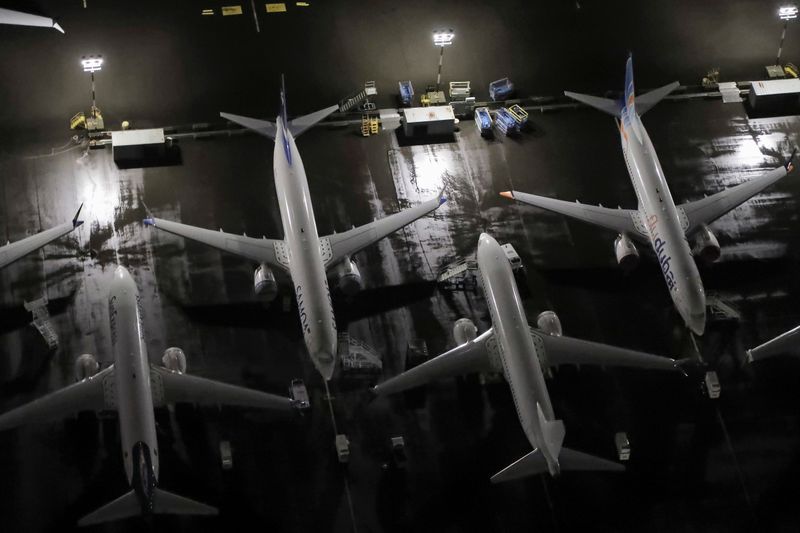By Stella Qiu and Jamie Freed
BEIJING/SYDNEY (Reuters) - China has raised "important concerns" with Boeing Co (N:BA) regarding design changes proposed to end the grounding of the Boeing 737 MAX airliner, Beijing's aviation regulator said on Thursday, declining to say when it might fly in China again.
The remarks broke months of public silence from China, the first country to ground the 737 MAX in March following the second deadly crash involving the model in less than five months.
"Boeing is currently upgrading its software to the 737 MAX, and it is still a work in progress. The CAAC has raised our important concerns on areas such as system reliability and safety assessment," Civil Aviation Administration of China (CAAC) spokesman Liu Lusong told reporters at a monthly briefing.
The 737 MAX would need to be re-certified and pilots given comprehensive and effective training before it could fly in China, he reiterated.
He said the causes of two crashes that killed 346 people needed to be investigated with effective measures put in place to prevent another one.
China in April said it had set up a task force to review design changes submitted by Boeing.
The U.S. Federal Aviation Administration (FAA) will not allow the 737 MAX to resume flying before the end of 2019, its chief, Steve Dickson, said on Wednesday.
"We continue to work with the FAA, CAAC and global regulators on addressing their concerns in order to safely return the MAX to service," Boeing said in a statement on Thursday.
FAA approval would allow the 737 MAX to resume flights in the United States, but individual national regulators could keep the planes grounded pending completion of their own reviews.
"Due to the trade war, the jury is still out on when China would reintroduce the aircraft," said Rob Morris, global head of consultancy at Ascend by Cirium.
Chinese airlines had 97 737 MAX jets in operation before the model was grounded, the most of any country, according to Cirium Fleets Analyzer.

Li Xiaojin, a Chinese aviation expert, said the country's airlines and passengers were taking a hit from the grounding alongside Boeing because it had crimped aviation growth.